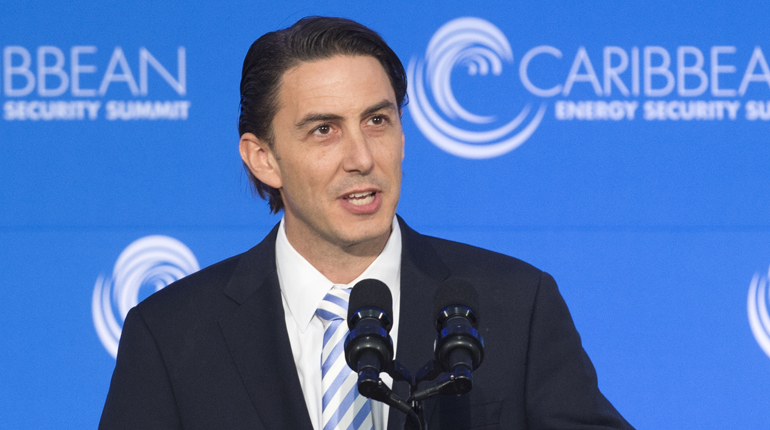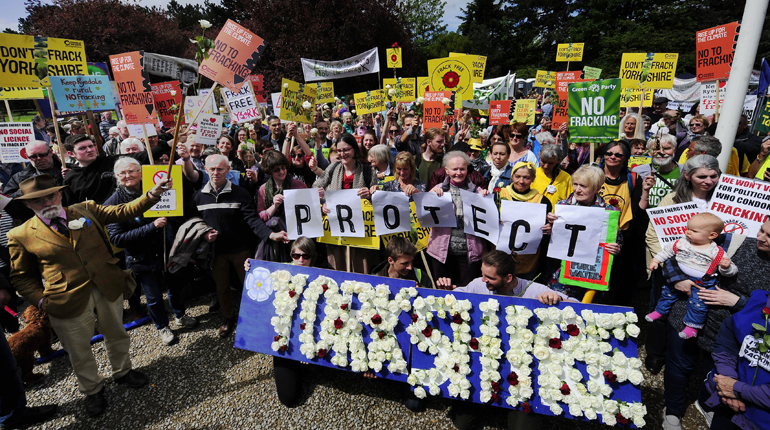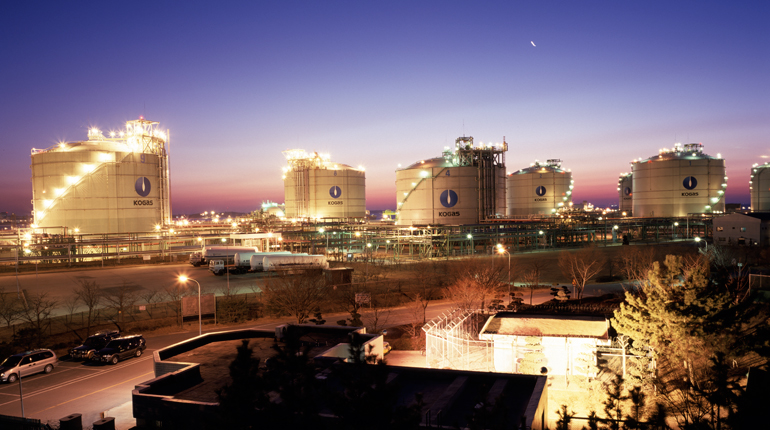 US diplomat Amos Hochstein. (US Department of State)
US diplomat Amos Hochstein. (US Department of State)
Amos Hochstein is special envoy and coordinator for international energy affairs at the US State Department, where he advises the secretary of state on global energy security and diplomacy. He spoke to Interfax about US LNG exports and opposition to the Nord Stream 2 project.
Interfax: Why has the US, previously a major oil and gas importer, started exporting the fuels?
Amos Hochstein: Technology advancement meant the start of the US shale gas revolution, and all of a sudden we went from the largest gas importer to hardly any imports of LNG and have now become an exporter. It was not a political decision or a geopolitical or national security issue. We have enormous gas resources we cannot consume, and therefore it made sense to export.
Interfax: Is the US looking to reduce Europe’s reliance on Russian imports?
AH: The US does not believe that any part of the world should depend on one supplier only for any commodity. That’s also true in the Americas, where some countries are 100% dependent for fuel on one supplier and we are trying to help them diversify.
In Europe, we want countries to continue to buy from Russia. Russia is an important supplier into Europe, but it cannot be the single supplier into the market. That’s not healthy for Russia; that’s not healthy for European countries. And the dependence of 100% on one supplier is a bad idea from an economic perspective, a commercial perspective and a political perspective.
So we have worked with Europe to diversify, bring in competition, and bring in the kind of infrastructure that will allow for competition of one form of gas compared with another. If Bulgaria or Serbia buys 100% of its gas from Russia, we would like to see competition, and the competition is not just with Russian gas but with different forms of gas. So you are going to have gas from the Caspian and from Azerbaijan competing with pipeline gas from Russia. We think they should be taking advantage of new technologies and making sure there’s LNG access as well, so you can compete with Israeli, Egyptian, Qatari, Australian or American gas.
I’m talking about market competition, where Russian gas competes with everyone. Right now, several countries in Europe have no choice. How do you negotiate price and supply terms if you have no choice?
Interfax: Why is the US opposed to the Nord Stream 2 pipeline project?
AH: I disagree that Nord Stream 2 is a commercial project. Because we already have infrastructure to bring in the necessary gas through Ukraine, and Nord Stream is not even operating at 100% [capacity], it’s at 70%. If you build LNG terminals and build new pipelines from other sources, there is enough gas infrastructure to come into Europe.
Building a $12 billion new pipeline when existing infrastructure is already in place and gas prices are at an all-time low means the commercial application of how you monetise [it] is suspect. The pipeline through Ukraine works well – it may need some maintenance and upgrades, but it serves its purpose.
Instead of creating new infrastructure to move gas from Ukraine to Germany, [creating a situation where] 80% or more of Russian gas [delivered] into Europe [goes] into one place, doesn’t make a lot of sense from an energy security perspective or from an economic security perspective.
Ukraine makes more than $2 billion in revenues from transit fees. Moving it away for no real reason seems to be [an] application of pressure on Ukraine at a time when their economic recovery is anaemic, and I don’t see how Ukraine would survive that.
Interfax: Do you see any similar issues with the Trans-Anatolian Gas Pipeline (TANAP) project?
AH: Absolutely not. The TANAP pipeline, which is the southern gas corridor, is bringing new gas Europe has never had access to. So it creates competition from a new source. Not only is the gas source different, but the transportation route is different.
Nord Stream 2 is simply delivering the same gas to the same customer rather than via Ukraine, through a different route via Germany. The TANAP project brings Azerbaijani gas from the Caspian, and maybe in the future, Turkmen gas into Europe. I think Europe should have LNG terminals that could feed into the [Trans-Adriatic Pipeline] so it competes with Caspian gas.
Interfax: Some people think US LNG exports will affect domestic prices. Do you agree?
AH: They haven’t so far. When we started the discussion about whether or not to begin exports, there was a discussion what will happen to prices. Some said prices will remain stable because we have enough gas, and others said gas prices in America will go up.
The reality is that gas [prices] fell – from $4[/MMBtu], to today where they are hovering at about $2[/MMBtu]. That’s very cheap. US natural gas is very cheap and we’ve started exports. So, those who make the argument that you have mentioned have already been proven inaccurate.








Talk to us
Natural Gas Daily welcomes your comments. Email us at [email protected].